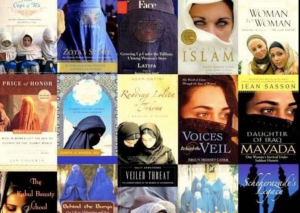Speaking of Christianity–not to mention Dustin's post–I often listen to the BBC''s podcasts and happened the other day upon a wonderfully intelligent discussion on the British channel's "Beyond Belief" program of the rich thought and legacy of the 16th century Protestant theologian John Calvin.
The occasion was the great theologian's recent 500th birthday. Here's the description from the "Beyond Belief" website:
To mark the 500th anniversary of the birth of John Calvin, Ernie Rea and guests discuss why this major Protestant reformer altered the shape and changed the thinking of Western Europe.
What is the legacy of Calvin and why do his ideas still influence churches in Britain and around the world today?
Calvin's grim and uncompromising perspective on sin, predestination and grace obviously rubs many contemporary sensibilities the wrong way, but that unpopularity doesn't make his insights any less profound or essential to serious theological undertakings. Still, as if often the case in intra-Christian debates, I find myself agreeing more with the Catholic discussant, who defended the idea of good works playing a real (if indirect) role in one's salvation against the Protestant principle of Sola Fide.
As much as I respect Calvin and appreciate the sophistication of his reasoning, I arrive at drastically opposing conclusions. I also respectfully disagree with many Christians' (especially contemporary evangelical Protestants') notions of grace, as I find them to implicitly devalue a moral dimension to existence that to my mind is absolutely fundamental to the relationship of a just and moral Supreme Being to his creation.
I see nothing deficient in works-based theology, assuming works encompass more than just utilitarian human-to-human interactions. Thus, "righteousness by works" is anything but paradoxical in my view. To the contrary, I feel it is for many intents and purposes the only kind there is in a world of such suffering, and I find it to solve more philosophical problems than the alternative. Faith remains central, but I see it as impossible to separate it from resulting deed.
Of course, it must be noted that most orthodox Muslims subscribe to a kindred notion whereby even the most upright person in terms of behavior who never gets around to making the Shahadah—including, according to many traditions, the Prophet Muhammad's own uncle, who courageously and at great personal cost protected Muhammad (peace be upon him) from his many enemies during the early years of his mission in Mecca, when the latter was most vulnerable–is lost for all eternity. (There has always been a minority that disagrees. Interestingly, Ibn Taymiyya–who is often invoked by Wahhabi Muslims–was one of the dissenters.)
I don't accept that position for a variety of reasons, the foremost among them being the fact that the Quran constantly and unambiguously associates faith in God to good works, often employing phrases that semanticly link them in the very same breath, such as "those who believe and do good"). A god that does not reward good deeds independently of faith–which can come and go, unless one defines it so metaphysically as to remove one's mind and heart entirely from the equation–is not a god I myself could have faith in.
Of course, there are no simple answers to these nagging questions, as each solution is accompanied by its own set of paradoxes. As is usually the case in age-old philosophical debates.
Many people would probably be quite surprised to know that there are striking parallels between Calvinist beliefs about predestination and core doctrines about sainthood in some major strains of Sufism. Studying this facinating pair of books by the unjustly neglected Hakim al-Tirmidhi (d. ca. 910 CE) for my Masters thesis a few years ago, for example, I was constantly struck by all the deep similiarities on the matter of divine election.
Getting back to the BBC recording, it's well worth the time, as the discussants are all very articulate and thoughtful.











